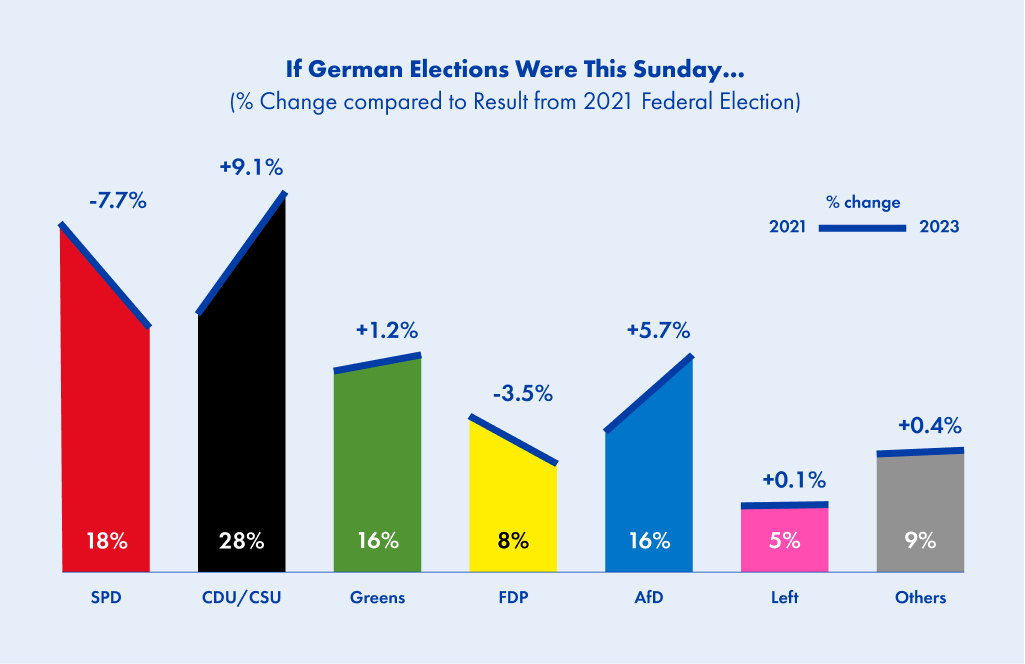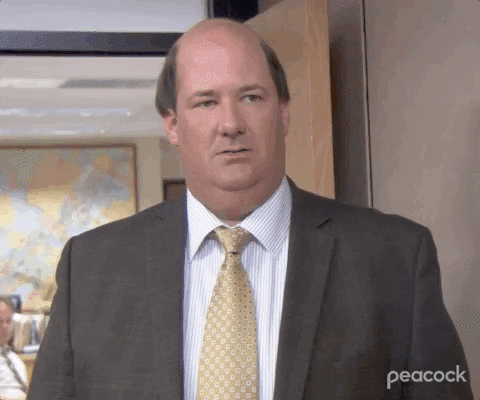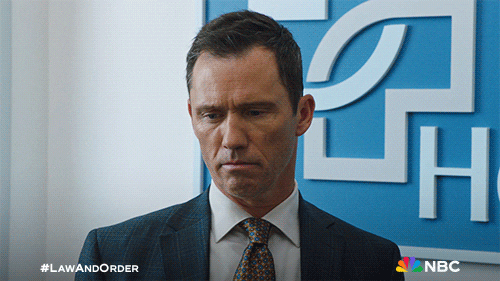Issue #128
Guten Morgen! Olaf Scholz has been a bit of an enigma in his time as Chancellor, letting his Cabinet do much of the public-facing work. Therefore, as Scholz finally stepped into the spotlight this week, we give you not one… but TWO articles about his goings-on in the Berlin and Brussels (or in this case Strasbourg) political bubbles. Then, check out Anna’s WOOM for some good old Schadenfreude, as some individuals who preach some pretty high moral standards have fallen very… very short of the mark this week. As always, happy reading, and may your weekend be as sunny and warm as it is forecasted to be here in Europe! Anna Szilvia The Strasbourgeois Trial of Olaf Scholz This week, German Chancellor Olaf Scholz made a little jump over the border to France to give a speech in front of the European Parliament (EP) on Europe Day (May 9th). In times of war on the European continent, mighty projects to transform European economy, and unprecedented common European debt, you might expect a speech for the ages from the EU’s most influential leader. In reality, what we were left with rather resembled the Comedy Central Roast of Olaf Scholz. His frankly forgettable 21-minute speech was littered with generalities like, “An enlarged EU must be a reformed EU,” and, “The more united we make Europe, the easier it will be to secure a good future for ourselves.” One part that did raise eyebrows however, was Scholz’s direct dig at French President Macron’s call for EU to become a global superpower. In his words: “Those who are nostalgic for the dream of a European world power… are stuck in the past.” Spiciness really began though when Parliamentarians began responding to the Chancellor’s speech. Terry Reintke Co-President of the European Greens criticized Scholz for his lack of deliverables after an election campaign that positioned Scholz as the Chancellor who tackles problems head-on. She also lambasted the Chancellor for backing his coalition partner, the FDP, after it blocked a decision in the European Council to phase out internal combustion engines – this “tarnished the reputation of the German government.” Group Leader of the European People’s Party Manfred Weber stated that the time of keynote speeches was over, and decisive action was needed to go forward. Even the (usually) pro-Scholz Renew Group leader Stéphane Séjourné stated that the German government was only doing well because of the policies brought in by the FDP. That being said, one thing is certain: European election season has officially commenced! Migration Summit: Here’s a Dollar, Don’t Spend it All at Once If anyone deserves a Feierabendbier this week, it’s Chancellor Scholz. After getting criticized by angry European Parliamentarians, Scholz came back to Berlin to face another seething mob: the Presidents of the Federal States. Already back in late 2022, mayors from various parts of Germany started sounding the alarm bells – their capacities to receive and host refugees were reaching their limits. Back in 2015 and 2016, Merkel’s famous “Wir schaffen das!” (transl. “we can do this”) was Germany’s slogan as over 1.2 million refugees flowed into Germany. Numbers are now even greater, and the various local communities across the country have been feeling the strain. Fast forward to this week, and the State Presidents banded together to seek a solution with Mr. Scholz. In the end, the Federal Government agreed to provide a further one billion euros to communities. At first glance, this might not look too spectacular. In reality, this compromise marks a clear cut between the Scholz and Merkel eras. Let’s explain: When Merkel was in charge, public revenue increased (pretty much) every year. In fact, she even enjoyed healthy budget surpluses between 2012 and 2019. As a result, in previous migration summits, the states succeeded in roping in Merkel & co. for increasing amounts of annual financing. Scholz, faced with a massive deficit following COVID spending, has now put an end to this continuous funding with his one-time payment. Also interesting: the left-leaning traffic light coalition of SPD, Greens, and FDP are now embodying a migration policy that leans more to the right than center-right Merkel’s. To give you a tangible example: Merkel insisted on keeping German borders open, despite opposition from within her own ranks. Now, Scholz’s government is suggesting they want to find a solution to keep migrants from coming to Germany – even if it means reinstating border controls into Germany. The topic will be revisited during the next Federal-State summit in November. Source: Infratest dimap/ARD Infallible Greens and Their Means The Green party in Germany has increasingly been dubbed the “Verbotspartei” (ban party). If you ask a citizen what they identify the Greens with, it most probably will go along the lines of: They want to take away my car, forbid my currywurst and prevent my vacation in Spain. While many of their policies feel like, and often are, sacrifice, most people would agree they are still necessary in striving for a better world. Of course, when asking for sacrifice anywhere outside of a dictatorship, it is indispensable to practice what you preach. It’s in the nature of things, then, that the Greens present themselves as sort of morally superior, when telling everyone what to do to save the environment, eliminate social injustice, and overall create a better world along the way – the finger-wagging spilling into all areas of life. And of course, when patronizing everyone, you would expect them to lead by example, right? Well, you shouldn’t. Green ministers using the plane for far too many trips, Green MPs using cars for walkable distances, Green party members eating meat (and not just from happy cows), the examples of hypocrisy are countless. The latest addition: Our Federal Minister of Economy hired a good friend to be his State Secretary, who in return hired his best man to lead an ancillary federal authority, not to mention several other friends & family connections recently having been hired by the ministry or adjacent authorities. Now, sometimes, and I think even a bit more in politics, it is hard to separate private and professional lives. You don’t go home after work, but spend long hours in meetings, congresses, working weekends and nights. Over time, your colleagues become your friends, and often the only ones you are left with. I can’t really blame anyone who hires them – it does not seem too far-fetched that the one person suitable for the job is already within your (close) circle. However, the lack of transparency, the handling of the whole hiring process after it came to light, the publication of details in little slices, the reluctant admission that things might not have been handled ideally – all of that is a problem. It would have been for anyone, and anyone would have been scrutinized by media and the public. But coming from the Greens, well, I hate to admit it; but there is a tiny bit of schadenfreude if it happens to those who present themselves as infallible. Issue #128


FIRST, SOME SOLID INTEL:
TAKE A BREAK, GIVE YOUR EYES A REST.

LONG STORY SHORT:
WHAT’S ON OUR MINDS:





